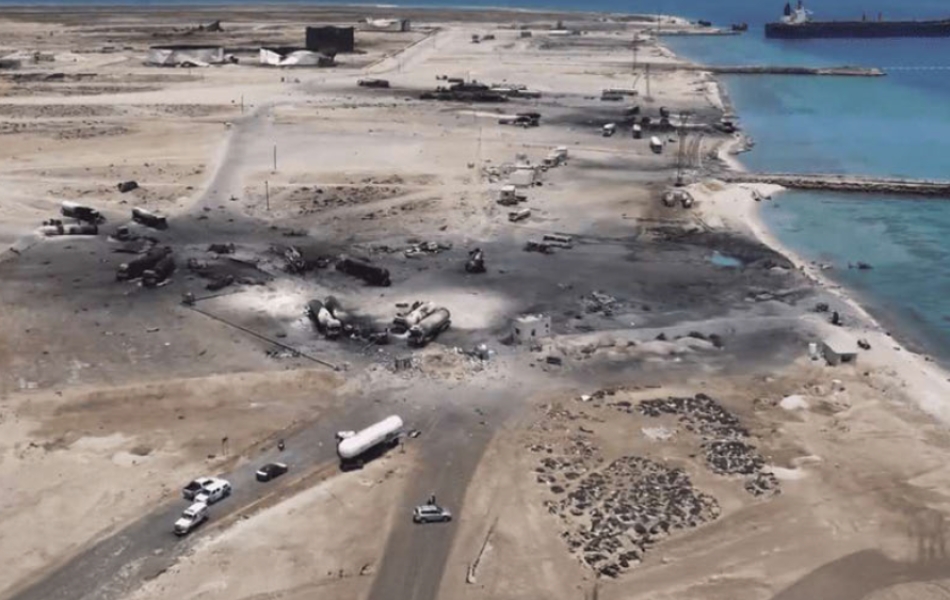
Geneva - SAM Organization for Rights and Liberties has issued a detailed report uncovering the legal, humanitarian, and economic consequences of the U.S. airstrike that targeted the Ras Isa oil terminal on Yemen’s Red Sea coast on April 17, 2025.
The report documents the deaths of 74 civilians and the injury of 171 others, most of whom were workers at the terminal. It also reveals the widespread destruction of infrastructure essential to fuel storage and distribution, placing millions at risk of severe fuel shortages.
The report clarified that Ras Isa was a critical economic artery in Houthi-controlled areas, used not only for fuel imports but also as a hub for humanitarian aid and basic public services. It emphasized that the port had no confirmed military use at the time of the attack, casting serious doubt on the legality of the operation under international humanitarian law.
According to SAM, the U.S. justification that the port was a source of revenue for the Houthi group does not, in itself, legitimize targeting a civilian facility without solid proof of direct military use. The organization explained that such action violates Article 52 of Additional Protocol I to the Geneva Conventions, which protects civilian objects unless they are used to make an effective contribution to military action.
The report also pointed out that the attack came amid heightened regional tensions, following months of escalated Houthi activity in the Red Sea and Bab al-Mandab. The U.S. had launched a series of airstrikes in response, but the Ras Isa strike stands out for its civilian toll and strategic implications.
Moreover, SAM highlighted that satellite imagery and open-source intelligence confirm the destruction of key fuel infrastructure, and that no warning was issued prior to the strike, contradicting claims that efforts were made to avoid civilian casualties.
Survivor testimonies collected by SAM recount horrific scenes. One worker described seeing “friends burned alive,” while another said the strikes “hit the gates before we could escape.” These accounts sharply contrast with official U.S. statements suggesting precautionary measures were taken.
The report also raised alarms over the economic fallout. With Ras Isa disabled, fuel shortages have intensified, impacting hospitals, agriculture, transportation, and electricity access. SAM warned that this could lead to a full-scale humanitarian disaster in Houthi-controlled regions, where millions already rely on humanitarian aid.
Legally, SAM concluded that the strike breaches the principles of distinction and proportionality, and called for an independent international investigation. The organization urged the international community, including the United Nations and International Criminal Court, to examine the legality of the U.S. operation and to hold perpetrators accountable.
SAM recommended immediate humanitarian intervention to mitigate the crisis and called on all parties to respect international law. It also urged the legitimate Yemeni government to take a clear stance on such operations carried out without its consent.
In closing, the report stressed the need to reaffirm legal norms in modern warfare, warning that the erosion of civilian protections under the pretext of combating terrorism endangers global humanitarian frameworks.